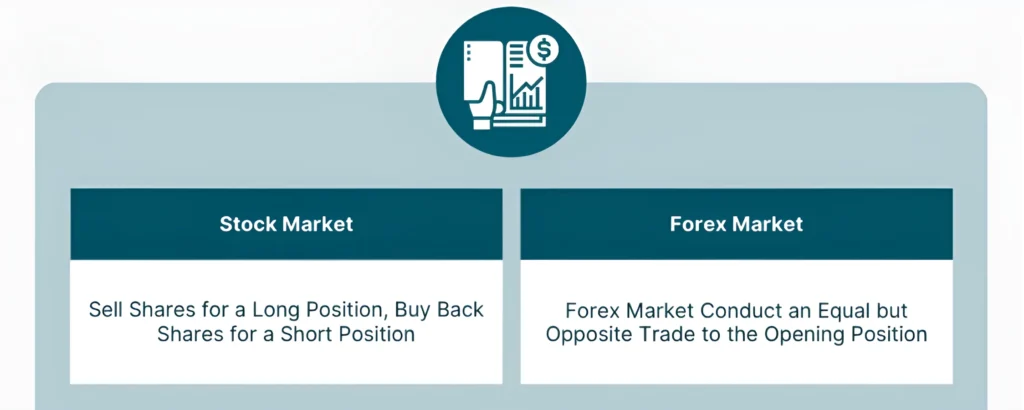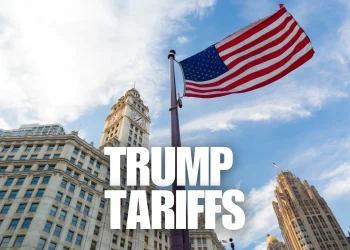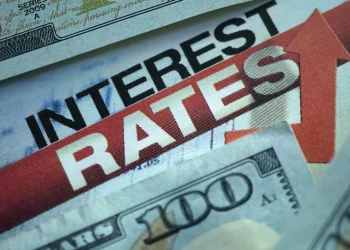You want to invest but aren’t sure if you should go with stocks or forex. You might be asking which one is less risky or which of them has the potential to provide higher earnings. This is what many investors think about when considering stock trading and forex. When determining where to invest their capital, many investors are faced with this difficult decision. To help you decide which is best for you, we’ll examine Forex and Stocks in more detail in this article and compare their unique advantages and risks.
Stock Trading And Forex | Introduction
With countless major, minor, and exotic currency pairs to trade, the foreign exchange market is the biggest and most liquid financial market in the world. Pips can be used by forex traders to track price changes and assess if the market is rising or falling. The most traded major currency pairings for forex trading include, among many others, EUR/USD, GBP/USD, and USD/JPY.
Trading on the stock market makes it possible for investors to make predictions about the value of penny stocks and blue-chip stocks, two well-known commodities with completely different original values. Microsoft, Apple, and Amazon are a few of the well-known businesses with significant market capitalizations that provide some of the most promising shares to trade. If you’re ready to take a chance on an uncertain investment, penny stocks may prove successful in the long run.
Which is More Liquid
Liquidity is a crucial factor to take into account when comparing forex and stock trading. The foreign exchange market is very liquid. This is due to the enormous number of people that are actively trading around the clock.
Large, well-known equities can also be quite liquid, as you’ll realize if you trade stocks. Microsoft and Vodafone are two excellent examples. However, stock trading can become substantially less liquid after you wander from blue chips.
Why Compare Liquidity?
Trading an asset can be made simpler by liquidity. Superior liquidity, in general, is associated with lower transaction costs and spreads that are proportionately tighter. Let’s compare some common expenses and have a look at a trading scenario. Let’s use the liquid share Microsoft and the liquid currency pair EUR/USD.
When trading you would pay a commission to your broker for a market spread. In regular market circumstances, the market spread for Microsoft might normally vary from 2 cents to 5 cents. This ranges from about 0.04% to 0.09%. Depending on the broker, commission fees can be as little as 10 cents per share. When the trade opens and closes, the commission is paid.
Compare that to EUR/USD. Spread-based trading with no commissions is the most typical method of retail in forex trading. The Trade.MT4 account operates in the manner described above. With such an account, you might pay a spread of 1 pip and receive no commission while trading EUR/USD. This has a round-trip transaction expense of 0.0001/1.1190 with the EUR/USD trading at 1.1190. Do you want to have an idea what percentage that amounts to? Less than 0.01%. Forex is superior for this comparison.
The forex position’s round-trip spread expense is lower than the share’s market spread. The forex trade is even more economical when the share commission is taken into account.
The Time Frame

We must also take trading hours into account when comparing forex and stock trading. The Forex market operates around the clock, has no one central location, is global in reach, and always has a portion of the market that is within regular business hours.
A listed stock can only occasionally be traded. The stock exchange’s operating hours must be followed by stock traders. However, a number of significant exchanges have implemented extended trading hours in some way. The pre-market and after-market trading times may be open to stock traders.
These only used to be the domain of institutional investors. Electronic trading has advanced, making it more accessible to retail investors as well. However, prolonged trading sessions continue to be particularly low volume and non-liquid. Forex succeeds once more when volumes over a 24-hour period are compared. The comparison is straightforward if you are trying to trade at any given time: Forex is the clear victor.
Market Volatility
Volatility is a measurement of how likely it is for a market’s price to experience significant, unexpected price swings. Prices will fluctuate swiftly in a market with high volatility, as opposed to more gradually in markets with low volatility.
Forex is incredibly volatile because it is so simple to trade. Although the market typically trades within a narrow range, the enormous volume of transactions on the forex market can result in price changes that happen quite quickly. As the market is prone to rapid and drastic fluctuations in response to these announcements, it is crucial to stay current on political, economic, and social developments when trading forex.
The price trends on the stock market are typically more consistent and easy to monitor over time. However, it is particularly vulnerable to domestic politics and, like forex, can experience periods of instability. For instance, the Dow Jones dropped dramatically in March 2018 as American businesses felt the effects of the trade conflict between the US and China under US President Donald Trump.
Trading volatility may offer many opportunities for traders to make returns, but it also has a higher risk, therefore it’s crucial to take precautions to stay away from unnecessary loss.
Margin and Leverage While Trading
Leverage in trading, sometimes referred to as margin trading, is unquestionably something to take into account when comparing the forex market to the stock market. A deposit—a tiny portion of the total deal value—can be made by traders when they open a spread betting or CFD trading account. As a result, traders have greater exposure when trading both stocks and forex, increasing their chances of success. However, it is also possible for this to have the reverse effect, leading to increased losses.
The margin rates on the forex market are often substantially lower and start at roughly 3.3%, or the equivalent of 20:1 in leverage. The stock market, on the other hand, offers leverage ratios of 5:1 and margin rates starting at 20%, which reduces the danger of capital loss. This would protect traders from suffering bigger losses if their trades fail. However, forex traders who have greater experience with unpredictable markets and closing positions quickly may benefit from using this larger leverage ratio because, if successful, the reward will be worth the risk.
The Connections Between Stock Trading and Forex
Trading professionals frequently use the relationship between financial markets to forecast future price moves. For certain stock market indexes and consequent exchange rates, the forex and stock markets have been known to be linked in particular.
Investors, for instance, observed a relationship between the Nikkei stock index and the USD/JPY currency pair before the start of the 2008 global recession. Investors would see a decrease in the Nikkei as an indication of weakness in the Japanese economy, which would cause the USD to appreciate versus the JPY. This is referred to as an inverse correlation. The yen gains strength versus the USD if the roles are reversed and the Nikkei’s value rises.
When opening positions in both markets, many traders can utilize currency connections to forecast future market movements. Forex and stocks have distinct differences, yet when examining technical trading patterns, they frequently complement one another. Market predictions are not, however, guaranteed, and because of the forex market’s special volatility, correlations between stocks and currencies can drastically alter without any prior notice of the direction in which the markets are moving.
Stock Trading And Forex | Which Market is Better?

There is no easy answer for what type of market is more better when all of the previous variables are taken into account. It is important to evaluate all outside elements, including personality type, risk tolerance, and overall trading objectives, when selecting a financial instrument or market to trade.
Yes, forex is more lucrative than stocks if your objective is to make tiny, regular returns from price changes using short-term tactics. The stock market is much less volatile than the currency market, where a skilled and determined trader can quickly make revenue. Forex is a riskier investment that could backfire because it also has a much higher amount of leverage and traders who focus less on risk management.
If your objective is to go after a buy-and-hold strategy for positions over the long term, the stock market is a safer and more regulated choice, that is if the stock is successful, and can produce even higher rewards over time. Trading stocks and forex can be rewarding if you employ various tactics and develop the right level of patience.
Conclusion
The most important thing is to constantly stick with what is effective when comparing stock trading and forex. This means doing what suits you the best. If one market is more familiar to you than the other, it could be best for you to stick to it. It makes sense for you to trade stocks if you are already more interested in specific corporations.
Forex might be more suitable for you if you have a macroeconomics-focused mindset. Forex can be the best option if you don’t have a particular preference but are concerned about transaction expenses.




